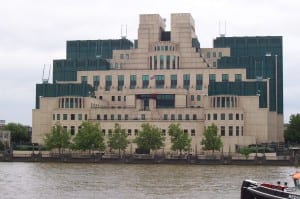 Some thoughts on the intelligence implications of Scottish independence, prepared for Andrew Neal’s seminar series on security in Scotland, which I was unable to attend but Hugh did. It draws together some ideas with regard to the potential challenges of establishing a new intelligence infrastructure, and effective oversight mechanisms, and also provides links to a number of useful sources.
Some thoughts on the intelligence implications of Scottish independence, prepared for Andrew Neal’s seminar series on security in Scotland, which I was unable to attend but Hugh did. It draws together some ideas with regard to the potential challenges of establishing a new intelligence infrastructure, and effective oversight mechanisms, and also provides links to a number of useful sources.
Scottish intelligence agencies
The intelligence implications of a yes vote are interesting and have been discussed both by the Government in Westminster and the Scottish Nationalists. However, discussion of this, as with other questions relating to independence, such as currency, are closely bound up with the campaign and as a result it is unclear whether we are being offered a clear picture of what is likely to happen. The UK government has tended to stress what Scotland would lose, with the suggestion that they would overnight lose access to British intelligence resources and would be forced to start again from scratch. The Foreign Affairs select committee also looked at the question as part of its inquiry into the foreign policy implications of and for a separate Scotland. They too cautioned that Scotland should not expect the UK agencies to make up any shortfall in capacity while Scotland established new agencies.
The UK government have also implied, perhaps implicitly, that Scotland would then become a target for the British intelligence agencies. As an overseas territory, British spies operating in Scotland would not be subject to the same restrictions and legal framework which governs their activities in the UK. The SNP, on the other hand, have argued that they would want, and have the capacity, to establish their own independent intelligence agency, they have drawn on the example of the Nordic countries, whose intelligence agencies while effective have not tended to have the same global reach as those of countries like the UK, USA or indeed France.
In the event of Scotland becoming an independent country, Britain’s security would still be dependent on a secure Scotland. The Royal United Services Institute assessment of the post-independence securiry architecture in Scotland focuses heavily on the potential for significant security vulnerabilities for the whole of the UK in what might be an extensive transitional period before Scotland has a fully functioning intelligence and security apparatus. However, if the stakes are really that high, and they probably are, it would be in no-one’s interest to suddenly stop collecting and sharing intelligence on security threats North of the border. I suspect that the UK agencies would continue to play a central and guiding role in any transitional period, and would help Scotland to establish its own intelligence agencies. After this, intelligence sharing and operational cooperation would become the norm.
There are some parallels here, albeit historical. Britain’s closest intelligence relationships are with the USA, Canada, Australia, and New Zealand. These countries were all once British colonies and Britain played a central role in establishing their intelligence agencies following independence (quite a long time after, in the case of the USA). The network of intelligence sharing between these states dates back to the Second World War, and is much closer than that Britain has with any other states, including within the EU.
The UKUSA agreement between Britain and the USA in which Britain and the USA agreed to share intelligence and to divide up the globe for the purpose of intelligence collection was established in 1943 and reaffirmed shortly after the war. The relations with Australia, Canada and NewZealand were effectively bolted onto this arrangement, with the result that a series of intelligence sharing agreements now exist, with an alphabet soup of acronyms – AUSCANNZUKUS, CANUKUS,AUSUKUS. Where an independent Scotland would fit into this is not clear but intelligence relations would probably more closely mirror those with the former (English-speaking) colonies than with Europe.
Intelligence oversight in an independent Scotland
The provision of oversight for new Scottish intelligence and security agencies raises further questions. In the case of Britain, the establishment of the intelligence and security agencies in their current form pre-dated the establishment of oversight mechanisms by more than eighty years. However, some form of democratic oversight of intelligence agencies is now the norm in Britain and around the world, and it is inconceivable that oversight bodies would not be established at the same time as the creation of new intelligence structures in an independent Scotland.
However, what form these oversight mechanisms would take is not clear, and as with the intelligence agencies, Scotland need not follow the same model currently in place south of the border.
It is important to remember that intelligence oversight generally exists on a number of different levels, involving different institutions and actors with different roles. According to Born and Leigh it may include some, or preferably all, of the following:
- Internal oversight – at the level of the agency, including chains of command and internal practices and procedures;
- Executive oversight – by the government, which should be responsible for tasking the agencies, establishing priorities and providing day to day control;
- Legislative oversight – accountability to parliament, usually through some form of oversight committee. This is important in terms of providing democratic oversight.
- Judicial oversight – to ensure that intelligence agencies operate within the law;
- Civil society – scrutiny by those outside the intelligence community including the media, pressure groups, and academics.
There is also some evidence for a growing interest in intelligence agency accountability on the part of international/intergovernmental organisations such as the European Union, the Council of Europe and the United Nations.
Providing intelligence agency accountability in an independent Scotland is likely to pose a number of distinct problems or challenges. Our research on parliamentary oversight at Westminster found that in addition to the form and powers of legislative oversight bodies, another crucial factor in their effectiveness is the level of expertise of those involved, and the question of legislative expertise in Scotland was also addressed in this recent blog by Paul Cairney on the subject of intelligence agency accountability in an independent Scotland. The Parliamentary Intelligence and Security Committee has drawn heavily on former Ministers with experience in domestic security, defence, and foreign affairs in order to provide the committee with the necessary expertise, although this has naturally led to criticisms that the committee has been too close the Executive and to the agencies. In the case of Scotland there are likely to be even fewer MSPs with any background in intelligence and with a much smaller chamber, a much smaller pool from which to draw expertise. Moreover, given that defence and foreign affairs have been a reserved powers the practice of appointing former Ministers is a less viable option.
One alternative may be to appoint a committee of external experts to oversee and inform parliament. This is a model which has been adopted in a number of countries, such as Canada, although it may be preferable to see this as a step towards direct parliamentary oversight rather than a long-term solution.
If as suggested above, Scottish intelligence agencies continue to work closely with their counterparts south of the border this also raises questions about the extent to which new oversight bodies will be able to oversee issues of intelligence sharing and liaison. Oversight of liaison is perhaps the most difficult and problematic aspect of intelligence oversight as exemplified most recently in the relation to the Snowden leaks and the Binyam Mohammed case. Any problems are likely to be compounded if Scotland adopts stronger and more open oversight mechanisms than currently exist in Britain. In such circumstances the British government, and agencies, are likely to put pressure on Scotland along the lines that intelligence sharing arrangements will be jeopardised by Scotland’s oversight mechanisms.
Nevertheless, there are also a number of advantages to establishing oversight mechanisms at this time. Intelligence oversight in Scotland will not be created in a vacuum. There are a number of models on which to draw from other states, and also some notions of best practice, such as those developed by the Geneva Centre for the Democratic Control of Armed Forces. The tendency will be to seek to mirror the oversight mechanisms in place at Westminster but this is not the only option. The Parliamentary Intelligence and Security Committee has evolved over time and has recently acquired new powers, but it has not been the most powerful or effective of oversight bodies, and Scotland may want to look to examples from other states, including once again the Nordic countries or the Netherlands. However, it is also important to remember that powerful oversight structures don’t always make for more detailed or effective scrutiny. The USA has some of the most powerful legislative intelligence oversight committees, but much of the current debate has revolved around whether members of Congressional oversight committees have been willing to wield that power.
Another potential benefit of establishing oversight mechanisms at the same time as the agencies, is that the two processes can inform each other. In this way executive and legislative oversight bodies and civil society can play a role in ensuring that effective internal procedures are put in place regarding what is and is not acceptable for intelligence agencies to do, and what powers should be wielded by the different oversight bodies.
